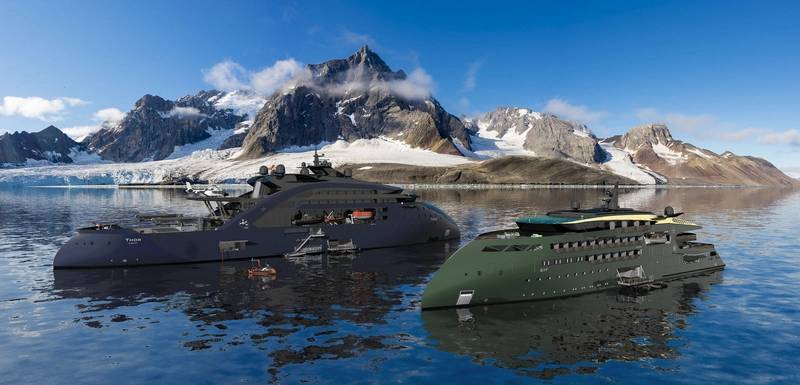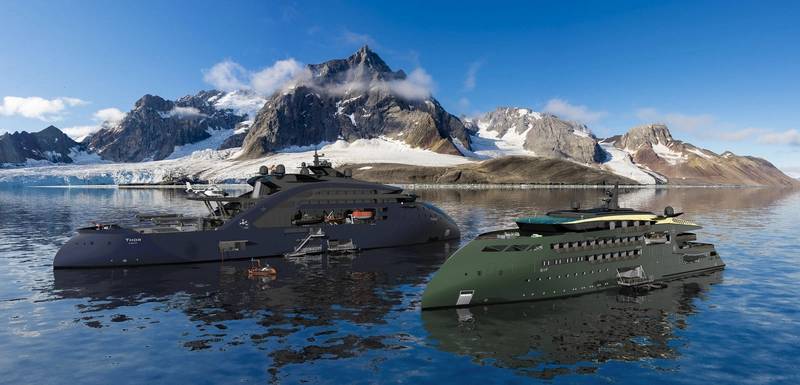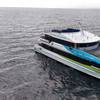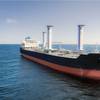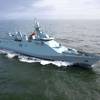Marine Design: Ulstein Takes Aim at Zero Emission Cruise Ops with Ulstein Thor
Ulstein today unveiled a vessel concept that it claims is capable of making the vision of zero emission cruise operations a reality. Dubbed Ulstein Thor, the 149m 3R (Replenishment, Research and Rescue) design will feature a Thorium Molten Salt Reactor (MSR) to generate vast amounts of clean, safe electricity. This enables the vessel to operate as a mobile power/charging station for a new breed of battery driven cruise ships.
Ulstein believes Thor may be the missing piece of the zero emissions puzzle for a broad range of maritime and ocean industry applications. To demonstrate its feasibility, Ulstein has also developed the Ulstein SIF concept, a 100m long, 160 POB capacity, zero emission expedition cruise ship. This Ice Class 1C vessel will run on next generation batteries, using Thor to recharge while at sea.
‘Thor’ is essentially a floating, multi-purpose ‘power station’ that will enable a new battery revolution,” said Cathrine Kristiseter Marti, CEO Ulstein.
Thorium has been identified as having huge potential for a maritime industry hunting for clean alternative fuels.
MSRs are safe, efficient and operationally proven solutions that work by dissolving Thorium – an abundant, naturally occurring metal with low radioactivity – in liquid salt. The ensuing chain reaction heats the salt, producing steam to drive a turbine and create electricity. Although developments on land are well documented, its potential for delivering clean maritime power has yet to be incorporated into a vessel design.
Thor’s charging capacity has been scaled to satisfy the power needs of four expedition cruise ships simultaneously. ‘Thor' itself would never need to refuel. As such, ‘Thor’ is intended to provide a blueprint for entirely self-sufficient vessels of the future.
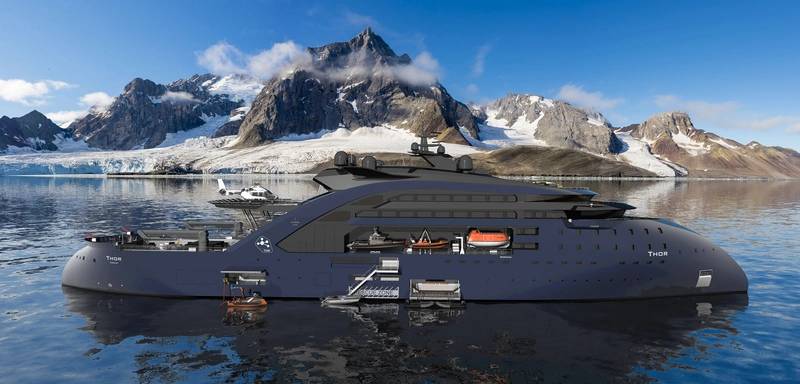 Ulstein Thor ready to repower another vessel. Image courtesy Ulstein
Ulstein Thor ready to repower another vessel. Image courtesy Ulstein
Speaking about the suitability of Thorium MSRs as an energy source for maritime applications, Jan Emblemsvåg, Professor at Norwegian University of Science and Technology, said “MSRs have enormous potential for enabling clean shipping. There is so much uncertainty over future fuels, but here we have an abundant energy source that, with the right approach, can be safe, much more efficient, cheaper, with a smaller environmental footprint than any existing alternative.”
“From my perspective I see this as the most viable, and potentially the only credible, solution for a zero emission fleet that can operate under commercial terms and cost levels. The ‘Thor’ concept is exactly the kind of innovation we need for sustainable success at sea.”
”





